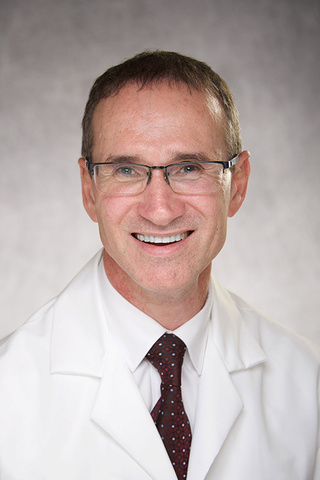 What is your hometown?
What is your hometown?

Brisbane, Australia
How/when did you become interested in science and/or medicine?
All the way through elementary school and high school I was interested in science; it fascinated me, and I seemed to do well in the subject. It was a mixture of arts and science that interested me.
When did you join the University of Iowa faculty?
2015
How or why did you choose to join the faculty at the University of Iowa?
One of the things that drew me to this position is the multidisciplinary approach used at the Center for Disabilities and Development. I’ve worked at places where lots of groups are assessing and treating children with disabilities. But they tend to work in silos; there’s not much communication between groups, and people are often housed in different buildings. But here, everyone is housed together in the same building. The emphasis is on collaborative work. Because I was finishing one grant and starting a new one, this opportunity also allowed me to look beyond what I was currently doing and explore new areas of research. The endowed professorship gave me funding where I could try a slightly different track which lead me to do research in autism. We have developed a phone application to look at predictive factors for autism and did some pilot testing this summer.
Is there a teacher or mentor who helped shape your career?
In Australia I was doing a fellowship in child protection research and seeing children who had experience abuse or neglect, while learning more about child development as part of a developmental pediatrics fellowship. My mentor there, later my PhD adviser, was Michael O’Callaghan. He was a tremendous influence and pointed me toward developmental pediatrics.
How do you see your faculty role impacting medicine and/or science?
We are currently studying mothers with addiction problems, trying to understand the impact that this may have on children as well as factors that may lead to addiction problems. Perhaps these mothers’ own experiences of neglect or trauma may affect the reward regions of the brain. They turn to drugs which artificially stimulate these reward areas and lead to reinforced behavior and addiction. So, we are trying to tease apart why these mothers respond differently to their babies and how their own history of abuse or trauma may be contributing to these differences. This may radically change our whole approach to the problem of maternal addiction. A lot of what we do now is focus on the drug use. In reality it may be their prior experiences or traumas that have made them more susceptible to drug use. By developing a stronger relationship with their own baby, it may be protective against ongoing drug use in the future or prevent that cycle from recurring with their offspring. If you show a mother that her addiction problems may be related to her own history of trauma, which is something that has occurred in the brain during development, she may have the opportunity to break that cycle for her baby. That’s a powerful motivation to change your behavior in order to change the trajectory for your own baby. That’s what we hope will come from the research we’re doing.
What is the biggest change you've experienced in your field since you were a student?
When I was in medical school, genetics was everything. We were taught that the genetic code was everything in predicting health, disease, psychopathology, mental illness, etc. Over the last 20 years we’ve discovered that this is not the case. The environment and the experiences we have throughout life have a profound impact on our neurobiology as well. And what’s been exciting is being able to discover how experience changes gene function. I think the thing with the biggest impact on science is our understanding of how the environment changes how genes function and how that relates to development and behavior of individuals and society.
What one piece of advice would you give to today's students?
Find something that you are passionate about and work toward making a difference. It’s easy to get caught up in deciding on the easiest lifestyle or what’s going to make the most money, but in the end, I think that helping others makes the difference.
In what ways are you engaged in professional activities outside the University (i.e. population-based research, mentoring high school students, sharing your leadership/ expertise with organizations or causes, speaking engagement off campus, etc.)?
I am very active in the Church of Jesus Christ of Latter-day Saints. I am involved with the youth in the church with camps and teaching.
What are some of your outside personal interests?
My wife and I have seven children. My two kids left at home are in show choir, arts and drama. And recently I have been involved in tracing my family history.
Learn more about Lane Strathearn, MBBS, FRACP, PhD.